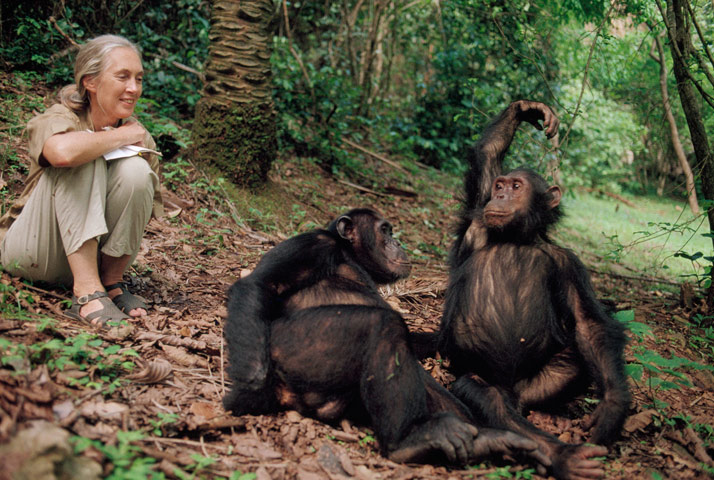There was this scientist name of Charles Darwin who came along and put us on the track of understanding living things, including ourselves. Lots of folks haven't heard the news, among them political pundits.
Human beings are animals. We are members of the class mammals and the order primates. We exhibit social behavior similar to that of our closest relatives, chimpanzees and bonobos, but to a much, much greater degree. The likelihood is that this is the result of our co-evolution with wolves. For the canines, the advantages wolves gained from human partners put pressure on them to behave in ways that curried our affection and led to dogs. For members of the genus Homo, the advantage that the most sociable humans gained from the partnership resulted in pro-social selection pressure on us. The final result was a level of cooperation that overwhelmed rival species like Neanderthals within a few thousand years of competition.
So how do scientists study the social behavior of chimps? How about wolves?
If we were studying chimpanzees, we might observe chimps grooming each other, i.e., cooperating to rid themselves of lice, and ask: "How do chimps decide which other chimps they will groom?"
Here's a scientist in the process of answering that question:
If we were studying wolves, we might observe an unrelated male trying to join up with a pack and ask: "How does the pack decide whether to admit this new male?" You do something that starts with a radio collar like this:
So this is a scene where scientists are studying the social behavior of humans voting, right? Lol.
Nope. Our smartest minds are busy with calculators and spreadsheets as if accounting were an empirical science.
This from the Voter Study Group is better, but can you spot the underlying assumption? The study's authors say that their survey asks people about *all kinds* of different things, but that's not really true. The reality is that they survey participants' views on public policy issues. That's not science.
The parallel would be Jane Goodall walking into the woods already assuming that chimps associate based on who collects the most food. She might then find lots of correlations between different food gathering strategies and how their practitioners landed in the social hierarchy, but she wouldn't have answered the question: what determines social hierarchy in chimps? Indeed, she would have assumed the answer before meeting her first chimp.






